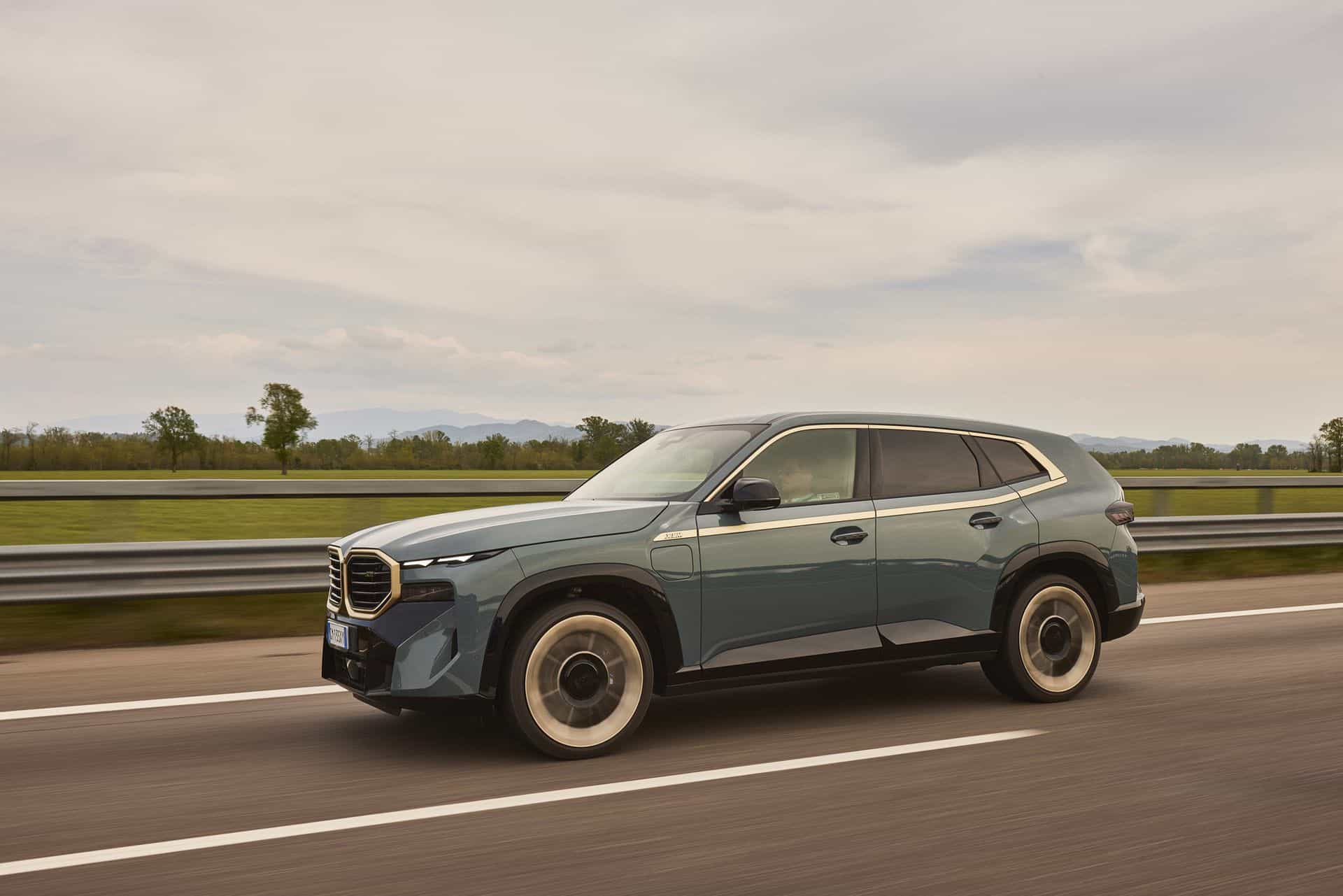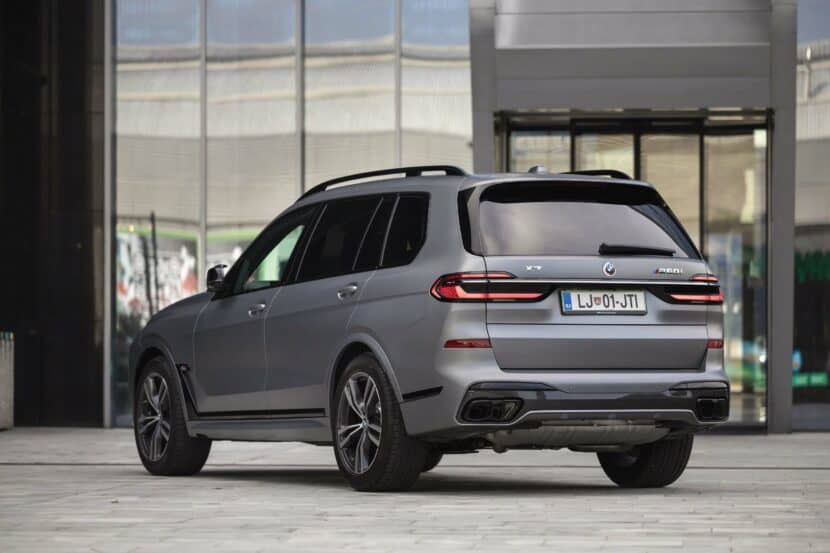Deliveries of the 2023 BMW XM started this spring, but one unlucky owner will have to drive the SUV back to the shop and have an issue sorted out. The National Highway Traffic Safety Administration says the vehicle poses a fire risk due to a poor connection between the exhaust system and the catalytic converter. According to NHTSA’s document, one or more of the fasteners might not have been torqued to the optimal value, which could ultimately lead to a loose connection.
In a worst-case scenario, a fire could break out, although the NHTSA states that this would be a rare occurrence. Along with the single XM assembled on March 10, four X7 M60i units built between March 4-11 are also being recalled for the very same issue. All five SUVs were built in South Carolina at the Spartanburg factory. The two high-performance luxobarges share the twin-turbo 4.4-liter V8 engine, but only in the XM is the new “S68” part of a plug-in hybrid powertrain.
BMW M’s newly developed engine is also installed in the 7 Series 760i, X5 M60i / M, and the X6 M60i / M. In its most powerful state of tune, the eight-cylinder mill delivers 653 hp (480 kW) and 650 Nm (479 lb-ft) in the XM Label Red. Expect to see a variation of the same engine in the next-generation M5 where it’s rumored to make about 700 hp after factoring in the extra punch of the electric motor.
The M division has pledged to keep the V8 around until at least the end of the decade, but for the large-displacement engine to comply with stricter emissions regulations, it needs to be electrified. All future M models will be hybridized, except for the beefier M2 versions as those are likely to continue with a “pure” inline-six.
Speaking of which, the 3.0-liter engine will also make it to 2030 and was recently installed in the XM 50e, a base version of the dedicated M model that will be sold only in certain markets. The United States won’t be one of them.
Source: NHTSA






































































